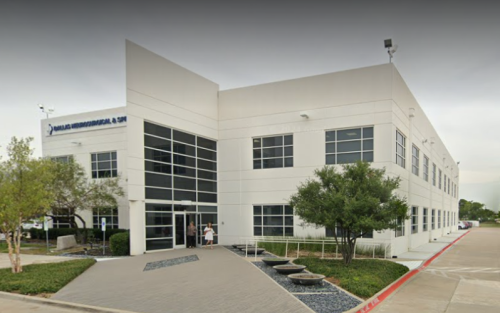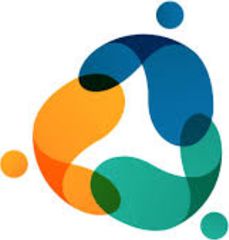

Connections Wellness Group Plano
Treatment Focus
This center treats mental health conditions and co-occurring substance use. You receive collaborative, individualized treatment that addresses both issues for whole-person healing.
Primary Level of Care
Outpatient treatment offers flexible therapeutic and medical care without the need to stay overnight in a hospital or inpatient facility. Some centers off intensive outpatient program (IOP), which falls between inpatient care and traditional outpatient service.
This provider hasn't verified their profile's information. Are you the owner of this center? Claim your listing to better manage your presence on Recovery.com.
Treatment Focus
This center treats mental health conditions and co-occurring substance use. You receive collaborative, individualized treatment that addresses both issues for whole-person healing.
Primary Level of Care
Outpatient treatment offers flexible therapeutic and medical care without the need to stay overnight in a hospital or inpatient facility. Some centers off intensive outpatient program (IOP), which falls between inpatient care and traditional outpatient service.
Provider's Policy
Our services are competitively priced, and we are in-network with most major insurance companies. We do not take Medicaid insurance.
Connections Wellness Group Plano
Connections Wellness Group Plano
About Connections Wellness Group Plano
With a mission to provide access to comprehensive mental health treatment services in Plano, Texas, Connections Wellness Group is located near the International Business Park. Connections Wellness Group Plano is a 2024 Living Magazine Readers’ Choice winner in the ‘psychologist’ category. They offer accelerated outpatient therapy services, group therapy, expressive therapies, family support/therapy, couples therapy, case management, and aftercare planning. Psychiatry services like psychiatric evaluations and medication management are available for individuals 12 years and up. The center offers academic instruction and school support for students while they receive treatment. Individuals can receive a complimentary screening before starting any services.
Intensive Outpatient Program (IOP)
Connections Wellness Group Plano offers two different general mental health IOPs for adults and adolescents (13-17 years old). The adult IOP is offered Monday-Friday 9am-12pm and the adolescent IOP is offered Monday-Friday 9am-3pm (9am-1pm when school is out). The IOPs typically consists of 3 hours of group therapy per day, which includes process groups, psychoeducational groups, experiential groups, and nursing groups. In addition, individuals will receive medication management and medication education. The program is typically 4-6 weeks long and at the end of treatment, clinical staff will collaborate with patients on an aftercare plan.
Partial Hospitalization Program (PHP)
The center offers two different general mental health PHPs for adults and adolescents. The adult PHP is offered Monday-Friday 9am-1pm and the adolescent PHP is offered Monday-Friday 9am-3pm (9am-1pm when school is out). Each group meets 5 days a week for 4 hours at a time. The PHP consists of process groups, psychoeducation groups, and experiential groups. Individuals can receive a psychiatric evaluation, medication management, nursing evaluations, medication education, and family consultation through the PHP.
Academic Support and Instruction
Connections Wellness Group's academic program is designed to complement the therapeutic care that students receive while in treatment. Their academic program is Cognia-accredited meaning all grades received during treatment are fully transferable to any school in any state. Students may also receive school credits while attending the program. There is no additional cost for students and families who use this program during treatment.

Highlights from the Center
Highlights
These highlights are provided by and paid for by the center.
Joint Commission Accredited
Center Overview
Treatment Focus
This center treats mental health conditions and co-occurring substance use. You receive collaborative, individualized treatment that addresses both issues for whole-person healing.
Joint Commission Accredited
The Joint Commission accreditation is a voluntary, objective process that evaluates and accredits healthcare organizations (like treatment centers) based on performance standards designed to improve quality and safety for patients. To be accredited means the treatment center has been found to meet the Commission's standards for quality and safety in patient care.

Insurance Accepted
Cash Pay Rates
Estimated Cash Pay Rate
Center pricing can vary based on program and length of stay. Contact the center for more information. Recovery.com strives for price transparency so you can make an informed decision.
Levels of Care







Your Care Options
Specializations
Adolescents
Teens receive the treatment they need for mental health disorders and addiction, with the added support of educational and vocational services.
Who We Treat
Adolescents
Teens receive the treatment they need for mental health disorders and addiction, with the added support of educational and vocational services.
Children
Treatment for children incorporates the psychiatric care they need and education, often led by on-site teachers to keep children on track with school.
Approaches
Personalized Treatment
The specific needs, histories, and conditions of individual patients receive personalized, highly relevant care throughout their recovery journey.
Evidence-Based
A combination of scientifically rooted therapies and treatments make up evidence-based care, defined by their measured and proven results.
Individual Treatment
Individual care meets the needs of each patient, using personalized treatment to provide them the most relevant care and greatest chance of success.
Therapies
1-on-1 Counseling
Patient and therapist meet 1-on-1 to work through difficult emotions and behavioral challenges in a personal, private setting.
Family Therapy
Family therapy addresses group dynamics within a family system, with a focus on improving communication and interrupting unhealthy relationship patterns.
Acceptance and Commitment Therapy (ACT)
This cognitive behavioral therapy teaches patients to accept challenging feelings and make the appropriate changes to reach personal goals.
Psychoeducation
This method combines treatment with education, teaching patients about different paths toward recovery. This empowers them to make more effective decisions.
Art Therapy
Visual art invites patients to examine the emotions within their work, focusing on the process of creativity and its gentle therapeutic power.
Solution Focused, Goal-Oriented Therapy
A quick goal-oriented therapy that helps patients identify their current and future goals, find out how to achieve them, and empower future problem-solving.
Conditions We Treat
Post Traumatic Stress Disorder
PTSD is a long-term mental health issue caused by a disturbing event or events. Symptoms include anxiety, dissociation, flashbacks, and intrusive thoughts.
Anxiety
Anxiety is a common mental health condition that can include excessive worry, panic attacks, physical tension, and increased blood pressure.
Depression
Symptoms of depression may include fatigue, a sense of numbness, and loss of interest in activities. This condition can range from mild to severe.
Grief and Loss
Grief is a natural reaction to loss, but severe grief can interfere with your ability to function. You can get treatment for this condition.
Obsessive Compulsive Disorder (OCD)
OCD is characterized by intrusive and distressing thoughts that drive repetitive behaviors. This pattern disrupts daily life and relationships.
Stress
Stress is a natural reaction to challenges, and it can even help you adapt. However, chronic stress can cause physical and mental health issues.
Bipolar
This mental health condition is characterized by extreme mood swings between depression, mania, and remission.
Trauma
Some traumatic events are so disturbing that they cause long-term mental health problems. Those ongoing issues can also be referred to as "trauma."
Eating Disorders
An eating disorder is a long-term pattern of unhealthy behavior relating to food. Most people with eating disorders have a distorted self-image.
Substances We Treat
Co-Occurring Disorders
A person with multiple mental health diagnoses, such as addiction and depression, has co-occurring disorders also called dual diagnosis.
Drug Addiction
Drug addiction is the excessive and repetitive use of substances, despite harmful consequences to a person's life, health, and relationships.
Alcohol
Using alcohol as a coping mechanism, or drinking excessively throughout the week, signals an alcohol use disorder.
Languages
Aftercare






